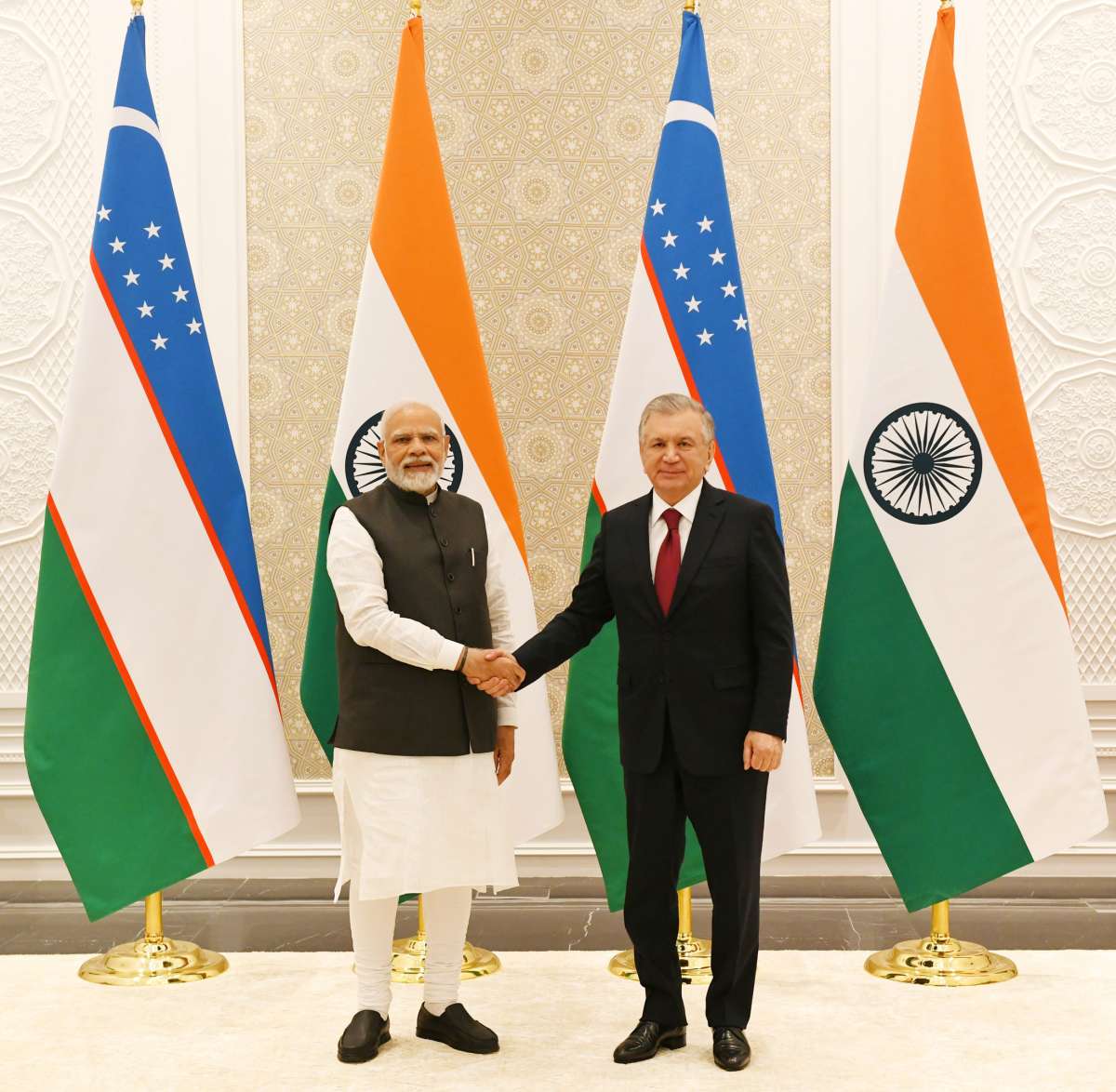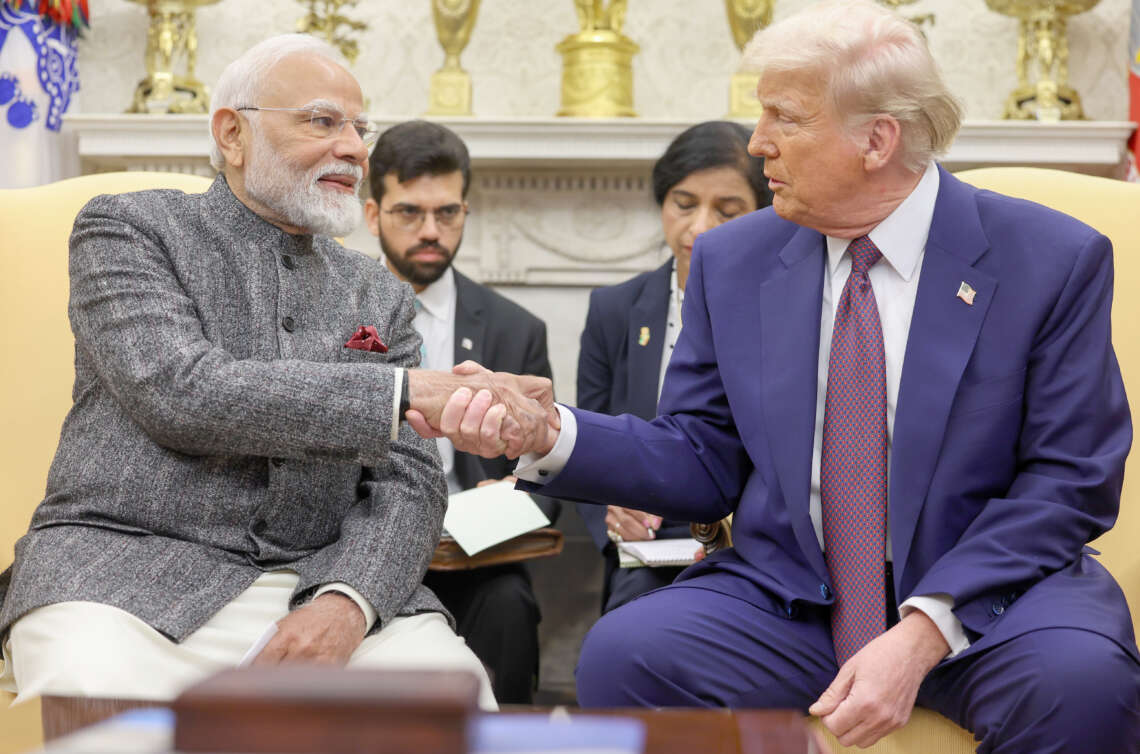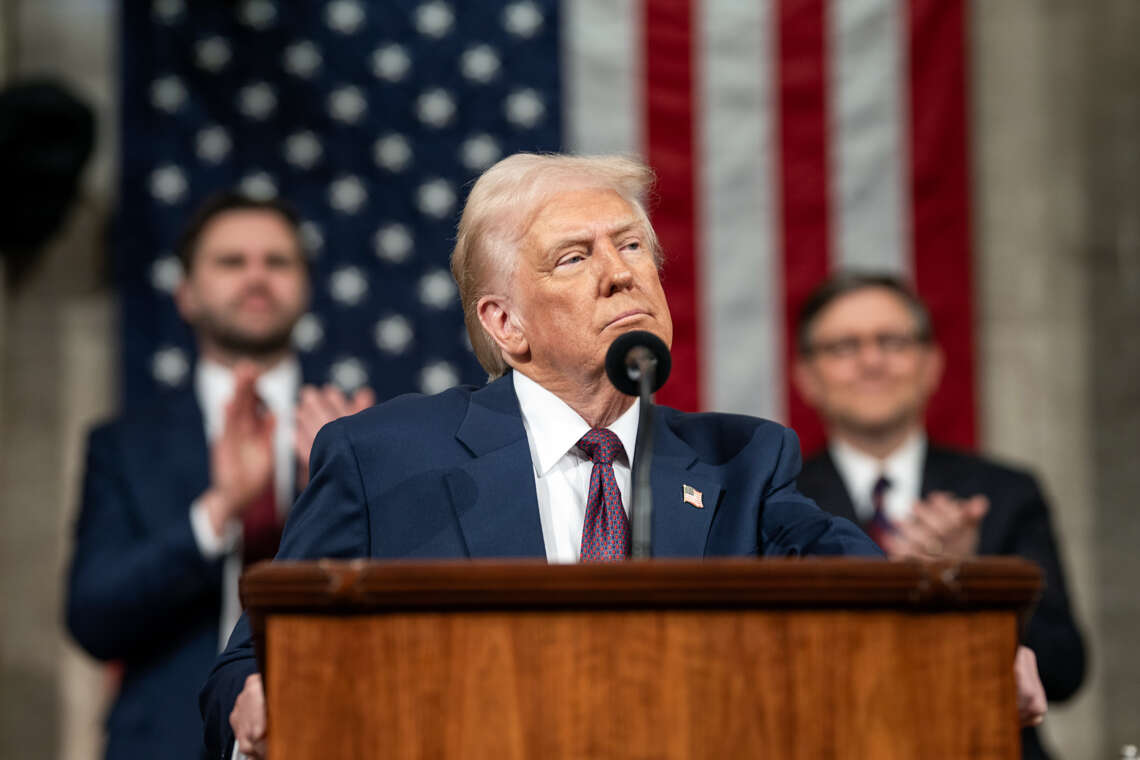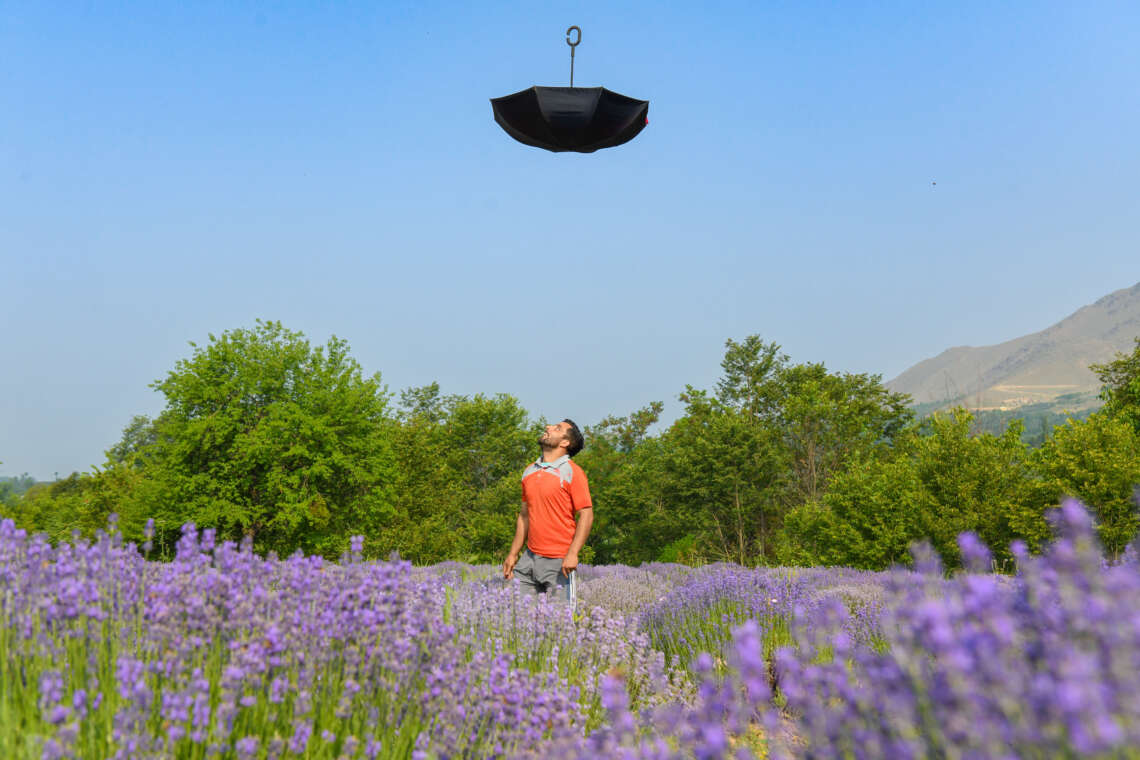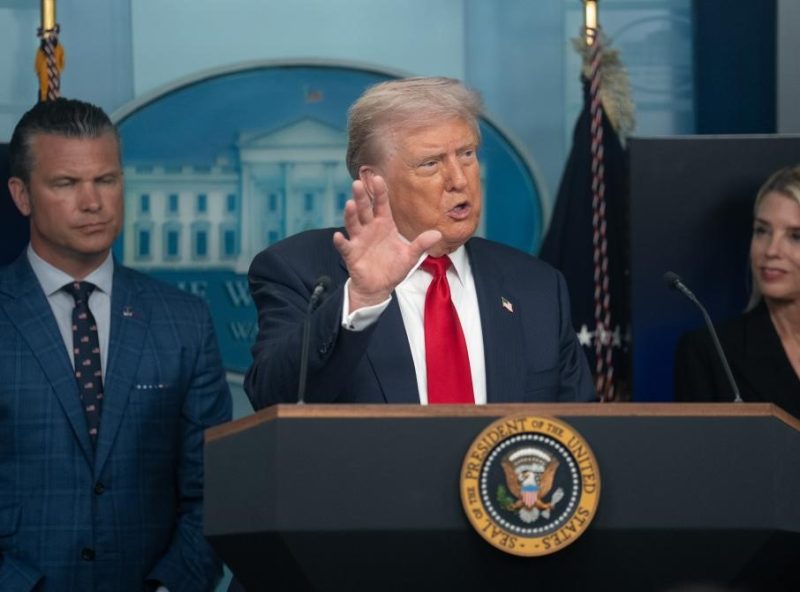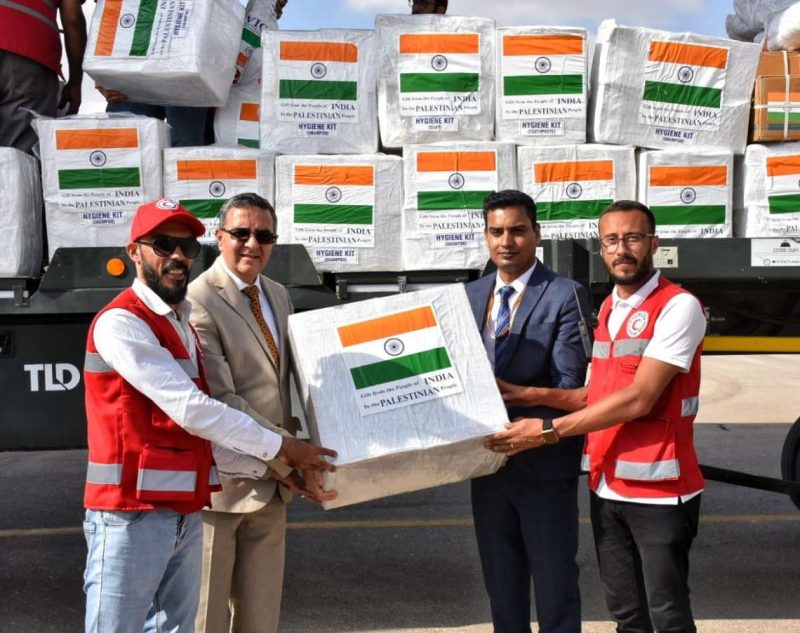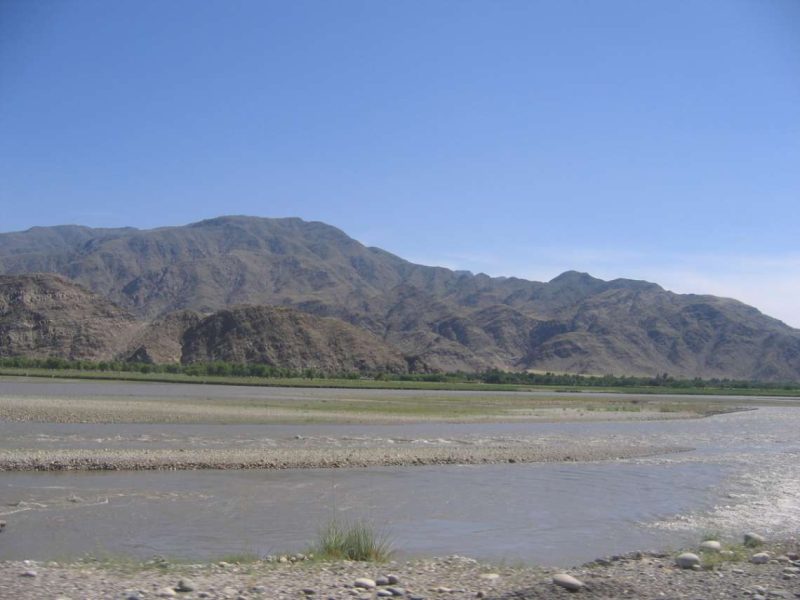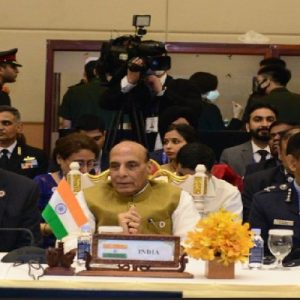Urging a united fight against terrorism, PM Modi said that it has become a major threat to regional and global peace and dealing with the challenge requires decisive action, regardless of its form or manifestation…reports Asian Lite News
On July 4, India convened the 23rd Summit of the Heads of States of the Shanghai Cooperation Organisation (SCO) in a virtual format. It was a first since the country became a full-fledged member of the organisation in 2017.
All member states participated in the meeting which included Prime Minister Narendra Modi, President Vladimir Putin of Russia, President Xi Jinping of China, President Kassym-Jomart Tokayev of Kazakhstan, President Sadyr Japarov of Kyrgyzstan, President Emamoli Rahmon of Tajikistan and President Shavkat Mirziyoyev of Uzbekistan. Besides, Iran was admitted to the fold as a full member, while Belarus signed the memorandum of for its membership.
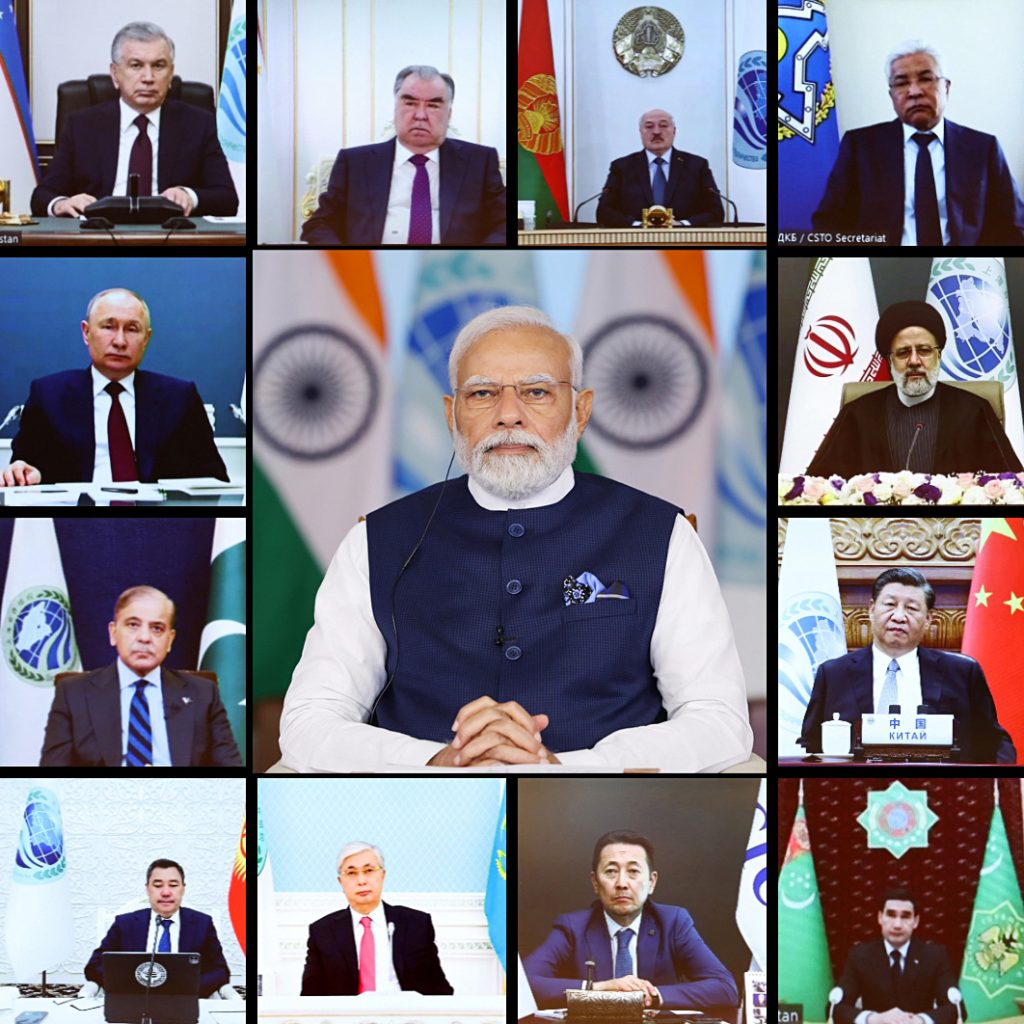
Urging a united fight against terrorism, PM Modi said that it has become a major threat to regional and global peace and dealing with the challenge requires decisive action, regardless of its form or manifestation.
Alluding to Pakistan, also a member-state, the Prime Minister said, “Some countries use cross-border terrorism as an instrument of their policies, provide shelter to terrorists. SCO should not hesitate to criticize such nations. There should be no place for double standards on such serious matters.
“We need to enhance mutual cooperation in dealing with terror financing as well. The RATS (Regional Anti-Terrorist Structure) mechanism of SCO has played a significant role in this regard. We should also take proactive steps to prevent the spread of radicalization among our youth,” he emphasized as Shehbaz Sharif and Xi Jinping gave a stone-faced stare.
While all other participants at the summit also touched on the threat of terrorism, it was Uzbekistan’s President Shavkat Mirziyoyev who made the most pronounced articulation about the dangers represented by terrorism and the importance of dealing and countering religious radicalism. In this he echoed the sentiments of PM Modi when he spoke about the need to step up the activities of the SCO (RATS).
Taking further his vision to tackle terrorism in the regional and a global level President Mirziyoyev said that Uzbekistan considers it necessary to speed up the preparation and adoption of major multilateral documents such as the Convention on Cooperation against Cybercrime and the Joint Program to Combat Extremist Ideology. He emphasized the need to accelerate the adoption of these important multilateral instruments and addressing the root causes of the growth of terrorism in the world. He said, the practical implementation of these documents should become an adequate response to the challenges of radicalization and neutralize the attempts of destructive forces to spread their ideology, especially among the youth.
This is significant and not without reason. Like India, Uzbekistan too has been a victim of cross-border terrorism and has had to fight a long and hard battle against jihadist and radical groups like the Islamic Movement of Uzbekistan and the Hizb-ut-Tahrir. It is, for instance, not coincidental that the SCO’s main institution the RATS is based in Tashkent.
Taking on the cudgel from his predecessor the late President Islam Karimov, Mirziyoyev has tried to strike a balance through a slew of initiatives to develop and modernise Uzbekistan while also accommodating people’s aspirations. For instance, understanding the need to nip radicalism in the bud, Uzbekistan was declared a “secular” state just as the Taliban ensconced themselves in Kabul in August 2021.
Under Mirziyoyev’s watch, institutions such as parliament (Oli majlis), the judiciary and the press have been strengthened. So has grassroots organisations like the Mohalla system, a lot like our panchayat system. Simultaneously, there have been reforms in the economic sphere. The economy has opened up, foreign investors have been aggressively wooed, the economy has grown by 24 percent, and industrial growth by 34 percent. Foreign investments have increased exponentially in Uzbekistan; tourism has been aggressively promoted, making Uzbekistan one of the world’s top tourist destinations. This has resulted in formidable job creation.
This is an important factor in countering radicalism. Uzbekistan has a young population and the government’s focus on education and job creation are laudable.
Understanding the importance of the “human touch”, Mirziyoyev’s leadership helped put down the unrest in the country’s Karakalpakstan by using both the carrot and the stick. It has also reached out to the windows and children of Uzbek citizens who had joined ISIS and/or other radical organizations in Iraq and Syria and helped in their repatriation to Uzbekistan and rehabilitation into society through deradicalization programs. In all of this Uzbekistan is an important partner for India.
Radicalization and terrorism lie at the core of the foundation for the Shanghai Cooperation Organisation. This found reflection in the speeches of Prime Minister Modi and Shavkat Mirziyoyev. The joint statement on radicalization adopted by all members on July 4 is proof of the consensus that exists.


